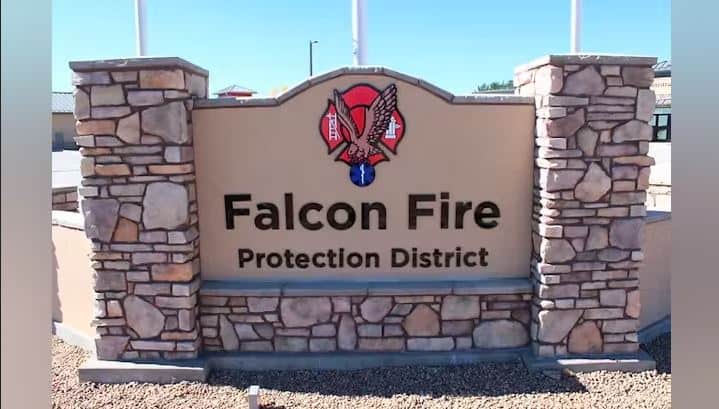No one can predict exactly what this winter will bring to Falcon in terms of weather, but itís a safe bet that cold temperatures and snow will occur. The Falcon Fire Protection District offers these tips to help residents stay safe during the colder months.General safety tips
- Install fresh batteries in smoke alarms and carbon monoxide detectors.
- Make sure heating systems are inspected and serviced.
- Have fireplaces and wood-burning stoves cleaned and inspected.
- Use generators only outside of a building to prevent carbon monoxide poisoning, and ensure power cords are appropriate for the electrical load.
- Keep space heaters away from anything that could catch fire such as drapes, furniture or bedding.
- Always use a flashlight, not a candle, for emergency lighting.
- Help firefighters by keeping fire hydrants clear of snow, ice and debris.
- Pay attention to weather conditions by monitoring an NOAA Weather Radio and/or local news channels for critical information on snowstorms and blizzards from the National Weather Service.
- Bring pets/companion animals inside during winter weather. Move other animals or livestock to sheltered areas with access to non-frozen drinking water and food.
- Avoid overexertion when shoveling snow. Overexertion can bring on a heart attack, which is a major cause of death in the winter.
- Winter weather advisory: A significant winter storm or other hazardous winter weather is occurring or imminent, and is an inconvenience.
- Winter storm watch: Significant winter weather (heavy snow, sleet, freezing rain or a combination of these) is expected but not imminent for the watch area. Severe winter weather is possible within 12 to 36 hours.
- Winter storm warning: A significant winter storm or hazardous winter weather is occurring, imminent or likely, and is a threat to life and property.
- Blizzard warning: Winter storms with winds of 35 mph or higher, blowing snow that reduces visibility to a quarter mile or less for at least three hours; causing dangerous wind chills in the warning area.
- Have vehicles checked and serviced by qualified mechanics to ensure they are ready for winter travel.
- Keep the gas tank full.
- Avoid driving when conditions include sleet, freezing rain or drizzle, snow or dense fog.
- Notify others of travel schedules, routes and expected arrival times, and check in regularly.
- Stay on main roads and avoid back road shortcuts.
- Drive only during daylight hours, and avoid driving alone if possible.
- Bring blankets to keep warm if the vehicle becomes stranded.
- Bring bottled water and warm beverages to avoid dehydration.
- If forced to stop because of a snowstorm or blizzard, pull off the highway and turn on the vehicleís hazard lights. Hang a distress flag from the radio antenna. Remain in the vehicle.
- If stranded for an extended period of time, keep the exhaust pipe clear of snow and run the engine for about 10 minutes every hour to stay warm. Open a window slightly for ventilation while the car is running, to prevent any carbon monoxide buildup.
- Shovel, small broom and windshield scraper
- Flashlight, battery-powered radio and extra batteries
- Water and non-perishable, high energy foods like unsalted canned nuts, dried fruits and hard candy
- Necessary medications
- Extra hats, socks, mittens and blankets
- Matches in a waterproof container
- First aid kit with pocket knife or multi-tool
- Tow chain or rope, booster cables
- Road salt, sand or non-clumping kitty litter
- Emergency flares, fluorescent distress flag and/or brightly colored cloth
- Firewood
- Water and non-perishable food (at least a three-day supply of each)
- Emergency equipment such as generators, flashlights and battery-powered or hand-crank radios, tested and ready for use
- Extra batteries
- Keep batteries charged for mobile phones, laptop computers, and other mobile devices
- First aid kit
- Medications (seven-day supply) and medical items (hearing aids with extra batteries, glasses, contact lenses, syringes, etc.)
- Sanitation and personal hygiene items
- Food, water, and supplies for children and pets
- Warm clothing and extra blankets for all household members





